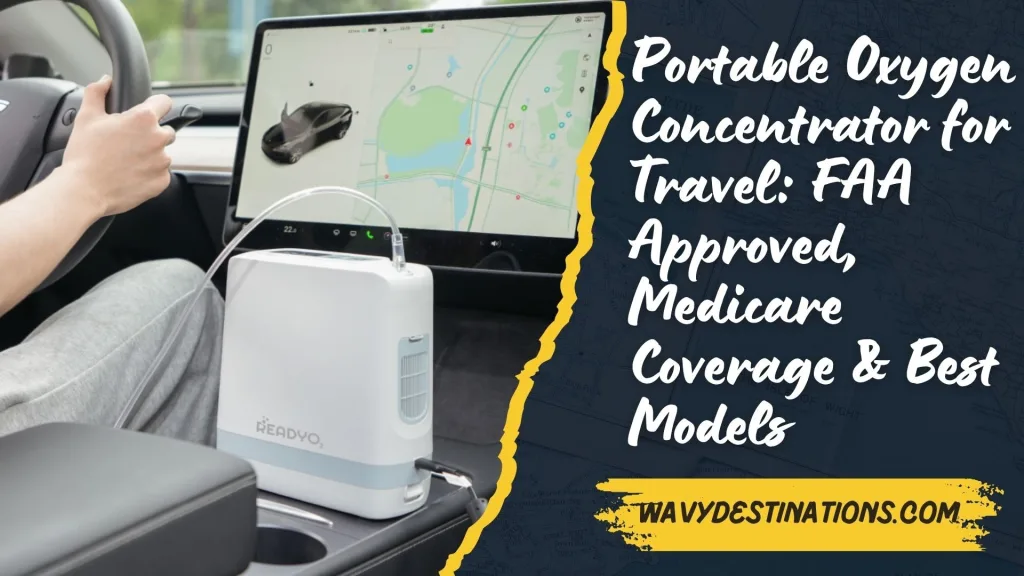How to Help Kids Stay Academically Focused While Traveling with Online Learning
Traveling as a family can be a rich and rewarding experience, but when school is still in session, balancing exploration with education becomes a real challenge. As more families embrace digital tools and flexible schedules, keeping kids academically focused on the road is no longer just a dream—it’s a growing reality.
With the rise of remote education, parents are turning to structured strategies and online learning solutions to ensure their children stay on track.
The global online tutoring services market was valued at $10.42 billion in 2024, and it’s projected to more than double, reaching $23.73 billion by 2030 with a robust annual growth rate of 14.5%.
This surge reflects a growing demand for personalized, portable learning that fits modern family lifestyles. In this article, we’ll explore how to keep your child engaged and focused academically while traveling, using practical tips and adaptable learning methods that work, no matter where the road takes you.
Pre-Travel Academic Focus Preparation Strategies
While the opportunities for combining travel and education are endless, success hinges on thorough preparation that sets both parents and children up for academic achievement on the road. Let’s dive into the essential groundwork that transforms good intentions into measurable learning outcomes.

Creating Digital Learning Profiles for Each Child
Setting up individual learning profiles helps you understand each child’s unique focus patterns and academic needs. Document their preferred study times, subjects that challenge them most, and learning styles that work best.
This information becomes invaluable when you’re trying to maintain consistency across different time zones and environments. Consider incorporating online tutoring as part of their digital profile, especially for subjects where they struggle most.
Many platforms allow you to schedule sessions in advance, ensuring continuity even when your location changes daily.
Establishing Baseline Focus Metrics Before Departure
Track how long your child can focus on different subjects in their normal environment. Time their attention spans during math, reading, and creative activities. These baseline measurements help you set realistic expectations and identify when focus problems are travel-related versus typical behavior.
Technology Setup for Optimal Remote Learning During Travel
Test all your devices and learning platforms before leaving home. Download offline content, ensure parental controls are configured, and create backup plans for internet connectivity issues. Online learning for kids works best when the technical foundation is solid.
Age-Specific Focus Techniques for Traveling Students
With your digital foundation and baseline metrics established, the next crucial step is tailoring your approach to your child’s developmental stage and learning capacity. Different ages require dramatically different strategies to maintain focus and engagement while navigating new environments.
Elementary Students (Ages 5-10): Gamification and Micro-Learning Sessions
Young children thrive on short, game-like learning experiences. Break study time into 15-20 minute chunks with movement breaks between sessions. Use educational apps that reward progress with virtual badges or points.
Middle School Students (Ages 11-13): Project-Based Travel Learning
Connect their academics to your travel destinations. Have them research the history of places you’ll visit or calculate distances between cities for math practice. This approach makes keeping kids focused while traveling feel natural rather than forced.
High School Students (Ages 14-18): Independent Study Contracts and Accountability Systems
Older students can handle more responsibility but need clear expectations. Create written agreements about daily study requirements and consequences for missing targets. Regular check-ins help maintain accountability without micromanaging.
Environmental Optimization for Study Sessions While Traveling
Even the most age-appropriate learning strategies can crumble without the right physical environment to support concentration. Creating optimal study conditions becomes both more challenging and more critical when your “classroom” changes every few days.

Noise-Canceling Solutions and Portable Study Zones
Invest in quality noise-canceling headphones and create a portable study kit with familiar items like a small lamp, favorite pen, and comfortable cushion. Consistency in small details helps children focus despite changing surroundings.
Lighting and Ergonomic Considerations in Temporary Spaces
Poor lighting and uncomfortable seating can quickly destroy focus. Pack a small LED light for reading and consider portable ergonomic accessories. These study tips for traveling students might seem minor, but they make enormous differences in concentration levels.
Time Zone Management and Schedule Adaptation Methods
Once you’ve mastered creating portable study sanctuaries, the next hurdle becomes managing the invisible challenge that disrupts even the most well-prepared families: time zone chaos. Strategic schedule adaptation can mean the difference between thriving academically and constantly playing catch-up.

Gradual Adjustment Protocols for Different Time Zones
Don’t expect immediate adaptation to new time zones. Shift study schedules gradually over 3-4 days rather than jumping directly to local time. This prevents the cognitive fog that makes focusing nearly impossible.
Peak Focus Time Identification and Protection
Most children have natural focus peaks during specific hours. Protect these times fiercely, even if it means adjusting sightseeing plans. Remote learning during travel succeeds when you work with your child’s natural rhythms rather than against them.
Advanced Online Learning Platforms and Focus-Enhancement Tools
While smart scheduling lays the groundwork for consistent learning, the right technological tools can exponentially amplify your child’s focus and engagement. Today’s cutting-edge platforms offer solutions that seemed like science fiction just a few years ago.
AI-Powered Adaptive Learning Systems
Modern platforms adjust difficulty levels automatically based on your child’s performance. These systems prevent frustration from tasks that are too hard or boredom from work that’s too easy.
Virtual Reality Educational Experiences for Immersive Learning
VR technology creates immersive learning environments that capture attention like traditional methods can’t. Virtual field trips and 3D modeling help with spatial learning challenges while collaborative virtual spaces enable group learning experiences.
Troubleshooting Common Focus Issues During Travel
Even with advanced study techniques in your toolkit, certain travel-specific focus challenges will test every family’s resolve and preparation. Recognizing and quickly addressing these common issues prevents minor distractions from derailing entire study sessions.
Motion Sickness and Learning Adaptation Strategies
Some children can’t study while moving, while others find gentle motion soothing. Test different scenarios during short trips before embarking on longer journeys. Pack motion sickness remedies and plan stationary study time when needed.
Dealing with FOMO and Travel Excitement Interference
Travel excitement can completely destroy focus. Acknowledge this reality and build excitement management into your schedule. Sometimes, a 30-minute exploration break prevents hours of distracted, unproductive study time.
FAQs
How long does it take for kids to adjust their focus to online learning while traveling?
Most children need 3-5 days to adapt to new learning environments, though this varies by age and personality type.
What are the best online learning platforms for kids with ADHD during travel?
Look for platforms with short lesson segments, frequent rewards, and minimal visual distractions that can be overwhelming in new environments.
Can traveling actually improve a child’s academic focus and performance?
Yes, new environments can enhance creativity and problem-solving skills, while real-world applications make learning more meaningful and memorable.
Making Travel Learning Work for Your Family
Successfully combining education with travel isn’t about perfect execution – it’s about flexible preparation and realistic expectations. The key lies in understanding your child’s unique needs, preparing thoroughly before departure, and adapting strategies as you learn what works best for your family on the road.
Remember, the goal isn’t to replicate a traditional classroom experience but to create something even better: learning that’s engaging, relevant, and memorable. When done right, educational travel doesn’t just maintain academic progress – it accelerates it in ways that surprise everyone involved.






